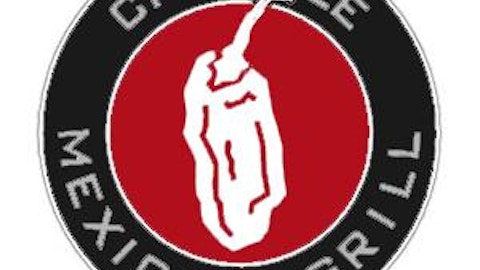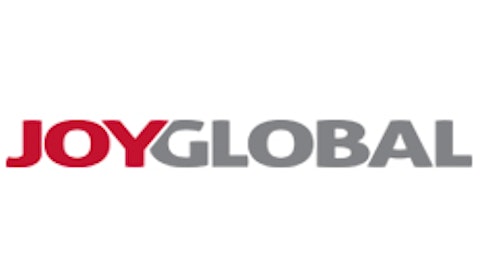Through books such as Million Dollar Portfolio, and The Motley Fool’s investment newsletter services, TMF co-founder David Gardner has laid out his market-beating criteria in “rule breaker” investing.
I’ve learned a lot from this strategy over the years. Like many Fools, I’ve learned to look for “first mover” growth companies, as well as businesses with great management teams.
The biggest thing that rule breaking investing has taught me, however, is to challenge my biases. Like most investors I have an inescapable urge to sell a winning stock that has had a huge run up in price; this is an urge that’s cost me a lot of money, and it has also taught me a valuable lesson.
By watching companies like Google, Starbucks Corporation (NASDAQ:SBUX), and Chipotle crush the market, I’ve learned that great stocks don’t always come back down to earth.
Here are three high-priced stocks that just might defy gravity indefinitely.

More than a hill of beans
Starbucks Corporation (NASDAQ:SBUX) is a perfect example of how a company can keep shattering growth expectations without doing anything flashy. Starbucks recently reported earnings growth of 28% year over year, led by rising margins and increased foot traffic. Going forward this coffee maker should see increased growth from its newly-aquired Teavana brand, as well as an increase store-bought products (which currently account for less than 10% of sales).
Good coffee isn’t the only factor behind Starbucks Corporation (NASDAQ:SBUX)’s growth. The business has been on an unheralded run since Howard Schultz returned as CEO. Starbucks Corporation (NASDAQ:SBUX) really owes a great deal of its growth to the passion that Schultz has for the product.
Here’s a perfect example of what I’m talking about:
In 2008 Schultz ordered a worldwide, three hour shutdown of all Starbucks Corporation (NASDAQ:SBUX) stores for training. The move was criticized by many investors, as closing the stores cost Starbucks revenue in the short-term. But shutting down during peak hours to “perfect the art of espresso” was exactly the kind of message that Schultz needed to send to the market.
The company recently raised its profit forecast and expects to grow earnings by double digits again this year. I’ve followed, and held, Starbucks for years and have heard investors call it “expensive” at $16 per share, and at $30, and at $50.
I can understand why Starbucks Corporation (NASDAQ:SBUX) growth is always in doubt–many people just view it as an overpriced coffee shop, but it’s so much more than that. When you buy a share of Starbucks, you’re really buying a piece of Schultz. Sure the company could be overvalued now, but I feel you can’t put a valuation on the passion of a founder like Schultz. I may end up looking foolish (small “f”) for recommending the stock at this high of a price, but not any more foolish than those who feel it must drop in price simply because it has gone up. I won’t bet against Starbucks, at least not as long as Schultz is leading the company.
High risk, high reward
After reporting second quarter earnings that were down 9%, and missing expectations, 3D Systems Corporation (NYSE:DDD) saw its shares tumble. In the two weeks that have followed the announcement the stock price has rebounded, but the short interest in the company still sits at a lofty 27.25%.
In my opinion, with quarterly revenue growth at 45%, you should be cheering the presence of short sellers. For truly long-term investors, the short-sellers offer a potential catalyst via a “short squeeze.”
Clearly these shorts are flocking to this stock based on valuation. 3D Systems Corporation (NYSE:DDD) has been a phenomenal growth story in recent years, but it currently trades at a P/E of over 100. To some investors, this may be a stock that has rallied too far, too fast.
However, earnings matter a little less to a company like 3D Systems Corporation (NYSE:DDD), so the P/E is less relevant. This business is in an early stage of its growth, and it needs to spend money. 3D Systems Corporation (NYSE:DDD) was wise to increase spending in the second quarter, focusing on R&D and marketing instead of the bottom line.





